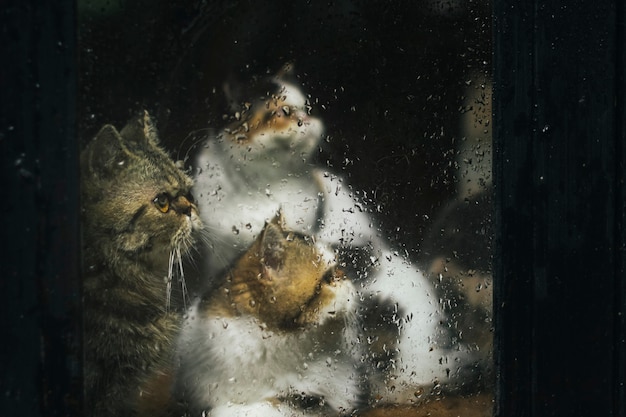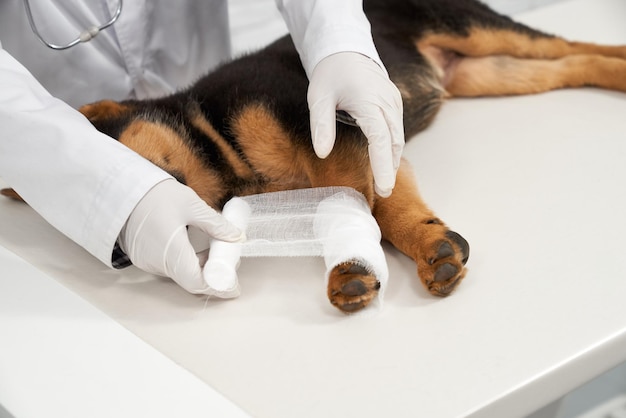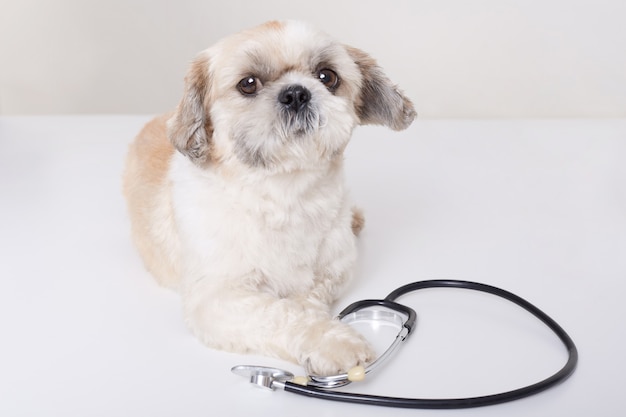Rainy Days and Pet Care: Managing Humidity, Hot Weather, and Muddy Paws


Rainy Days and Pet Care: Managing Humidity, Hot Weather, and Muddy Paws
As Lexington’s summer unfolds, pet owners know that August can bring more than just sunshine. Between sudden downpours, steamy afternoons, and plenty of puddles, our beloved animals face a host of challenges that can affect their skin, paws, and daily comfort. At Green Tree Animal Hospital, located at 4371 Old Harrodsburg Road, Suite 140, Lexington, KY 40513, we understand how unpredictable weather patterns in Lexington and surrounding communities can complicate your pet’s care routine. Whether you’re wrestling with muddy paw prints after a walk, worrying about your horse’s skin health in muggy fields, or just trying to help your cat stay cool, seasonal pet care tips are essential for keeping your companions healthy and happy.
In this guide, we’ll explore how humidity, heat, and wet conditions impact animals of all kinds. You’ll learn how to spot trouble signs, why these problems arise, and what practical steps you can take at home. We’ll also explain when it’s time to schedule an appointment with our veterinary team for a professional evaluation. If you’re searching for practical advice from a “vet near me” who truly understands Kentucky’s climate, you’re in the right place. For further support with pet skin or coat issues, our dermatology services are designed to help pets thrive through every season.
Recognizing the Impact of Humidity, Heat, and Mud on Pets
How Seasonal Weather Challenges Appear
When rain clouds gather and humidity climbs, pets and horses can quickly show signs that the weather is taking a toll. Common symptoms in dogs and cats include persistent scratching, redness between the toes, a musty odor from the skin, or recurrent ear shaking. If you notice your pet frequently licking their paws, developing soft, irritated skin folds, or tracking excessive mud indoors, these are all indicators that seasonal pet care tips could make a difference. Horses, too, are susceptible; you might see hair loss, crusty patches on their legs (commonly called “scratches” or mud fever), or behavioral changes like restlessness after storms.
Other warning signs that suggest weather-related discomfort are hot spots, which are inflamed patches that seem to appear overnight, and paw pad injuries from rough terrain. Additionally, pets may pant more, become less active, or seek out cooler surfaces during hot and humid days. For exotic pets, such as reptiles or birds, changes in shedding, feather condition, or activity levels can signal sensitivity to excess moisture or heat. Recognizing these signs early is key to maintaining your animal’s health through the wettest parts of summer.
Why Humid, Rainy Weather and Muddy Conditions Cause Trouble
The Science Behind Seasonal Pet Care Challenges
Kentucky’s summer climate brings high humidity, frequent rainfall, and rising temperatures, all of which create the perfect storm for skin and paw issues in animals. When the air holds more moisture, it promotes the growth of bacteria and yeast on pets’ skin, especially in areas where fur remains damp or mud accumulates. Dogs and cats with skin folds or thick undercoats are especially vulnerable, as these spots trap heat and moisture, making them prime targets for infection. Horses, standing in wet pastures or stalls, can develop conditions like rain rot or mud fever due to prolonged contact with soggy ground.
Mud itself isn’t just a cleaning nuisance; it can carry irritants, allergens, and even harmful microorganisms that contribute to skin inflammation or infection. For pets that spend more time indoors during storms, humidity can also encourage dust mites or mold growth, triggering allergies and respiratory discomfort. Horses may develop hoof problems, such as thrush, when their feet remain wet for extended periods. Understanding these risks helps pet owners anticipate issues and take proactive steps to protect their four-legged friends.
Professional Treatment and Veterinary Management Options
How Your Veterinary Team Can Help
When seasonal conditions lead to persistent skin or paw problems, professional veterinary care becomes essential. At Green Tree Animal Hospital, our team of veterinarians combines advanced diagnostics with compassionate care to address weather-related health concerns. If your dog develops recurrent hot spots, our veterinary professionals can perform a thorough skin evaluation and may recommend medicated shampoos, topical treatments, or oral medications to combat infection and soothe inflammation. For allergies exacerbated by humidity, our allergy testing services help identify specific triggers so we can tailor treatment to your pet’s unique needs.
Horses with signs of rain rot or mud fever benefit from a complete examination, during which our veterinarians might suggest antiseptic washes, prescription ointments, and environmental management to promote healing. For muddy paws that refuse to clear up or keep getting injured, we may recommend paw soaks, specialized bandaging, or regular grooming to remove debris and prevent further complications. Our grooming services are designed to support healthy skin and coat maintenance, especially during challenging seasons.
In more severe cases, such as deep skin infections or persistent lameness, additional diagnostics like skin scrapings or fungal cultures might be necessary. We always encourage open dialogue, so if you have questions about seasonal pet care tips or the best approach for your animal, our veterinary team is here to guide you through each step.
Prevention and Home Care: Keeping Pets Comfortable During Lexington’s Muggy Season
Practical Seasonal Pet Care Tips for Every Owner
Proactive care is the key to avoiding many weather-related issues. For dogs and cats, daily paw checks after outdoor excursions help you spot mud, debris, or signs of irritation before they escalate. Gently washing and drying paws, especially between the toes, can minimize the risk of infection and keep your floors clean. Using a soft towel or pet-safe wipes is often sufficient for minor messes, while pets with longer hair may need a gentle comb-out to remove stuck-on mud.
Horses benefit from regular hoof cleaning and leg inspections, particularly after time in wet pastures. Applying barrier creams or salves can help protect against mud fever, while keeping stalls dry and rotating turnout areas reduces exposure to wet ground. For indoor pets, maintaining a comfortable environment with fans or air conditioning, controlling indoor humidity, and providing shaded rest areas go a long way in supporting skin and respiratory health.
Another important tip for muddy paws is to use doormats or washable rugs at entryways to limit the amount of dirt tracked inside. Consistent grooming schedules not only keep coats manageable but also allow you to spot early signs of trouble. Our grooming services offer professional assistance for pets who need extra help staying clean during rainy months.
Finally, regular wellness exams are an essential part of preventive care, helping to catch minor issues before they develop into bigger problems. If you’re interested in a tailored approach to seasonal pet care tips, consider scheduling a visit with our veterinary team.
When to Seek Veterinary Care for Weather-Related Skin and Paw Issues
Knowing When Home Care Isn’t Enough
While many mild skin or paw concerns can be managed at home, certain signs indicate that a visit to your veterinarian is warranted. If your pet’s symptoms include persistent redness, swelling, foul odor, open sores, or limping that does not improve within a day or two, it’s time to reach out for professional guidance. Horses with non-healing scabs, lameness, or spreading lesions should also be evaluated promptly. Signs of systemic illness, such as lethargy, decreased appetite, or fever, in any animal require an immediate call to your veterinary clinic.
Unresolved muddy paws that develop into cuts or infections, or skin issues that worsen despite your best efforts at home, are all reasons to schedule an appointment. Remember, our veterinary professionals are trained to identify and treat issues that may not be visible on the surface. For emergency situations, such as rapid swelling, difficulty breathing, or signs of severe pain, contact your veterinarian right away for urgent support. If you are searching for the “best veterinarian near me” for help with seasonal concerns, our comprehensive pet exam services are available to support your pet’s health year-round.
Conclusion: Keep Your Pet Happy and Healthy This Season
Navigating Lexington’s unpredictable summer weather doesn’t have to be stressful when you have the right seasonal pet care tips and a dedicated veterinary team by your side. From muddy paws to humidity-related skin challenges, Green Tree Animal Hospital is committed to helping your dogs, cats, horses, and exotic pets stay comfortable and healthy all year long. Our veterinarians offer comprehensive care, personalized advice, and preventive services that reflect a true partnership with pet owners in Lexington and surrounding communities.
If you notice signs of discomfort or just want to ensure your pet is ready for whatever the weather brings, we invite you to schedule an appointment for a wellness examination or grooming services. Your pet’s comfort is our priority, and we’re here to answer your questions and provide gentle, effective care. For expert support from a trusted “vet near me” who understands local conditions, contact Green Tree Animal Hospital at (859) 223-2221 or visit us at 4371 Old Harrodsburg Road, Suite 140, Lexington, KY 40513. Let us help you keep your companions clean, comfortable, and thriving, no matter what Kentucky’s weather has in store.
This blog is intended for informational purposes only and does not replace professional veterinary advice. If you have concerns about your pet’s health, please contact your veterinarian directly.






_corporate_logo-1920w.webp)
















